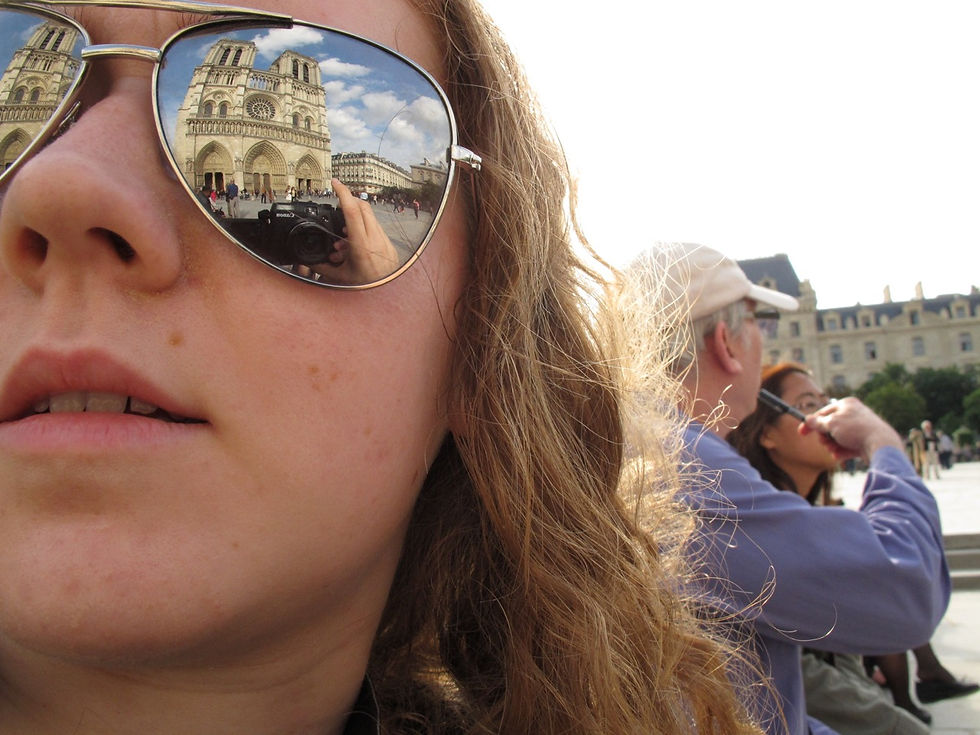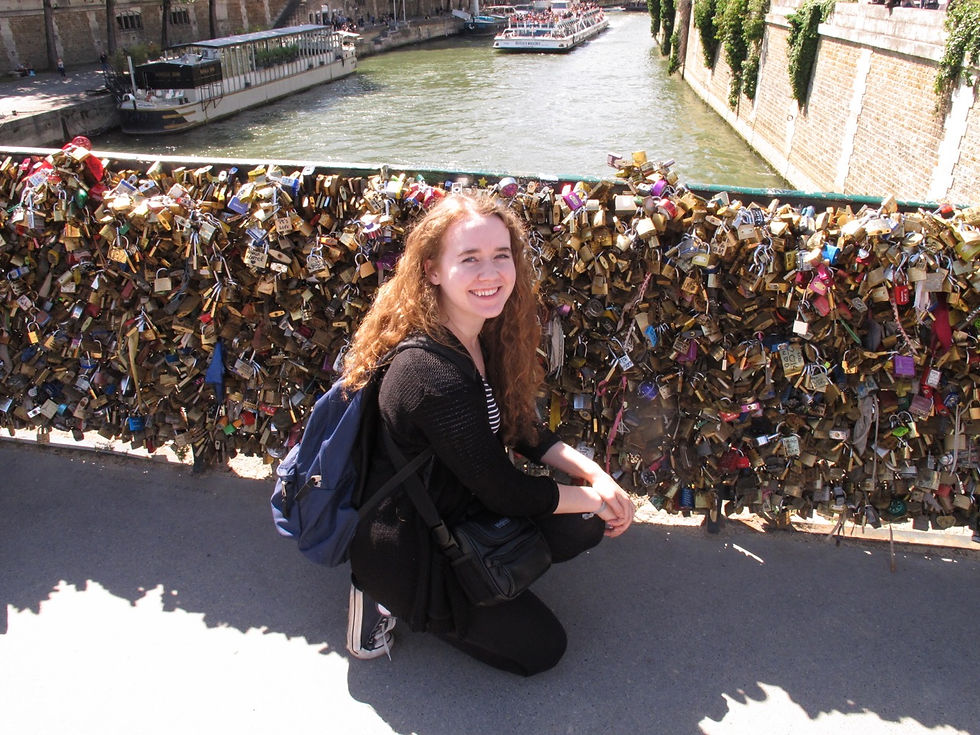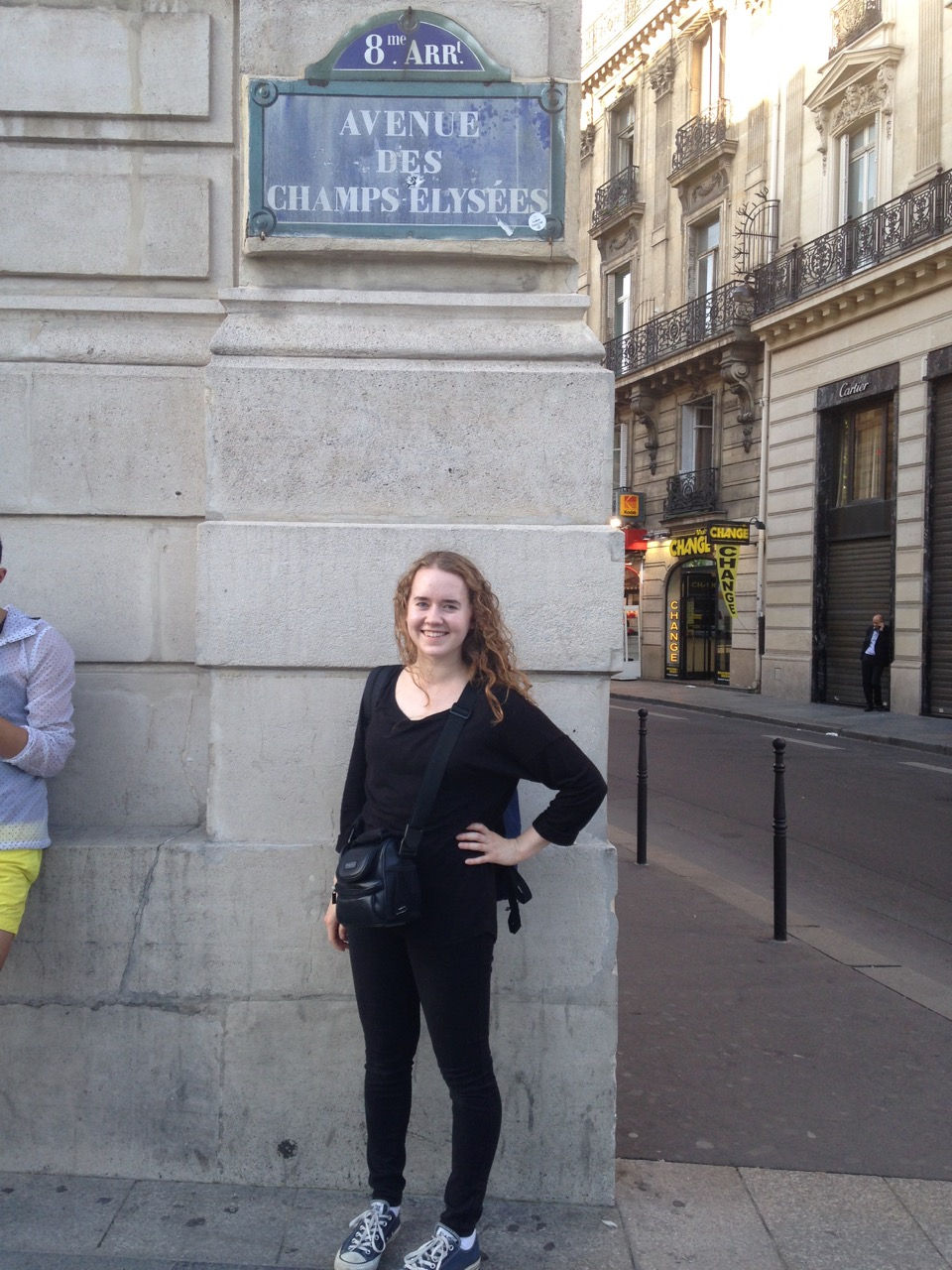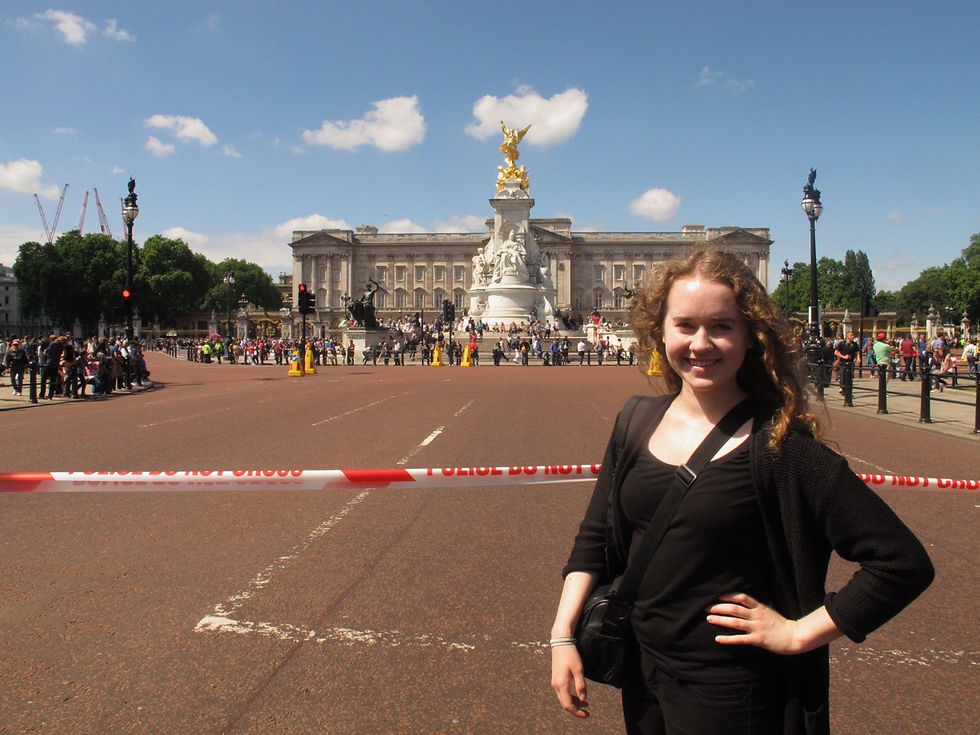The Anxious-Person's Guide to Traveling
- Zoë Paris

- Sep 2, 2019
- 6 min read
If you're prone to anxiety, but you have a dream of traveling the world, this post is for you. I understand the inner conflict you may have: how can I travel abroad when I can barely make it through grocery shopping without feeling a panic attack coming on? The best advice I can give you as a traveler with an anxiety disorder is this: travel will help your anxiety more than you know. It is an unbelievable confidence booster; by the time you've landed back home, you'll have a tool belt full of coping mechanisms that will ward off major anxiety. Let me provide you with some of my best tips for remaining calm, easing anxiety, and gaining confidence while traveling.
1. Write down why you want to travel
Your 'why power' here is crucial. Once you have your 'why', you'll be able to access that power when you begin to feel anxiety creeping in while you're on the plane, standing in crowds, or translating Hungarian on a busy street at night. My why power went something like this: "I want to travel because I want to prove to myself that I am capable of making it on my own during stressful situations. I want to see other cultures and experience the world knowing that I can." When I boarded my first flight out of the country, I began to feel my fingers go numb—a panic attack. I closed my eyes and took five long, deep breaths. My 'why power' kept running through my head, echoing throughout my body as I slowed my breathing, unclenched my fists, and re-centered.

2. Have a support system at the ready
The time difference you'll experience may cause problems in terms of reaching friends and family while away. I was 9 hours ahead of my family, so if I was having a hard time in the morning, I would have to wait for several hours for them to be awake. In those cases, I'd write down how I was feeling and rationalize the situation: I'm sitting in my hotel room on the bed. The AC is running, it feels nice. I had a croissant for breakfast. I'm doing so well. This is what I've wanted to do for years and I'm actually doing it.
The act of putting down the present moment on paper was immensely calming to me, and still is. Going through the logical happenings of my reality eased my racing thoughts and reminded me of my 'why power.' By the time I could contact my family, I was already feeling better. I still talked about my feelings to them, and they supported me throughout every cry and worry; having them as a lifeline made me feel less alone and like I had a cheer squad around me.
3. Use CityMapper
This app is a lifesaver. If you're in a city listed on their app, you can use it to navigate your way around town on their subway system, bus, bike, walking—you name it. It gives you time estimates for each mode of travel, along with an easy-to-use tracker to point you in the direction of where you should turn, walk, etc. While you're on your route, it gives you clear step-by-step instructions that will land any directionally inept person to their destination. For anyone who feels nervous navigating a new and/or foreign city, this app is a necessity.
4. Learn useful phrases in the local language
I kept a notebook of useful French phrases when I first traveled to France. Sentences like "I'm lost, can you help me?" and "I only speak a little French" were scribbled furiously the night before my flight. I kept these phrases at the ready while I was touring Paris desperately trying to find different museums and galleries, and Parisians were much more likely to assist me if I made an attempt to speak their language. The best advice I can offer to feel more comfortable in a foreign country is to learn key phrases that will help you the most. You'll float through the city feeling more confident knowing you can communicate with the locals and be understood.

5. When in a large crowd, be aware of the exit(s)
Depending on the situation, being in a large crowd makes me nervous. It feels claustrophobic, and my catastrophe thinking leads me to believe someone will come up from behind and stab me (it's irrational, I know, but the thought is there and I'd rather it not be). If the crowd is outside, it's way less of an issue; I know I can leave anytime I need to since I'm out in the open. When indoors, however, I can feel my throat closing. In those moments, I have to close my eyes to remove myself from seeing my space shrinking. I take deep breaths down to my gut, inhaling and exhaling through my mouth. Open spaces like fields and beaches float through my mind like passing clouds, and I try to shut off the surrounding noise as much as possible (headphones help with this).
In London when the tube was packed to the brim and my head was shoved under someone's armpit, I had to make do. I closed my eyes and pictured a clear space; it's all in the mind. Granted there were people around me who would voice that they, too, felt claustrophobic—which made me feel better knowing I wasn't the only one who was about to lose their shit on public transport. Closing your eyes and breathing will help with crowd anxiety the more you practice; give it a shot next time you're crammed in a bus mid-summer.
6. Know the local emergency numbers
Wherever you travel, know the country's emergency numbers and have your phrases handy. Know how to ask "Do you speak English?" (or whatever language you're more comfortable speaking; English is mine), and that should suffice in an emergency. Know the number for the local police, ambulance, etc. I saved all these numbers in my phone's notes so I always had them on hand, and felt better knowing if I needed it, I could get help immediately.
7. Get outside as much as possible
When you're feeling anxious, it's easy to seclude yourself indoors to avoid any anxiety-inducing stimuli. Sights and even smells could trigger a panic attack, and I understand that. But staying in your hotel room or AirBnB while on your travels is not the way to build your confidence. Whenever I felt particularly anxious due to culture shock and missing my family, I would repeat my 'why' and head out the door. I would go for a walk around the neighborhood, or take the subway to a park to walk in nature. Breathing in fresh air, looking at the trees, hearing the conversations of those around you—it'll all keep you present and centered. Continue to repeat your 'why' while you walk around and tell yourself how proud you are of what you're doing. Despite your anxiety, you're here.

8. Have endless distractions on the plane
I'm a nervous flyer, and in order to feel calm while I'm flying in a metal tube mid-air, I need to distract myself from that fact. Luckily today you can watch endless movies and TV shows on the plane, so you can get out of your head and focus on something else. Have your prescribed anti-anxiety meds if needed; I certainly did. Download songs on your phone and/or laptop that calm you down, make you happy, pump you up—whatever will ease your mind on the flight. Walk around too, I found this released major nerves when I felt sandwiched in my seat and kept picturing disastrous outcomes.

By the time I returned home after my first trip abroad, I felt like a new person. I conquered endless fears: flying alone (internationally!); navigating a foreign city by myself; communicating in a foreign language; dealing with culture shock; being farrr away from my family; and so on. I felt fucking invincible. I don't know if I would have made the progress I did with my anxiety had I not traveled abroad. If traveling abroad isn't an option, go smaller and travel around your state, country, county, etc. Explore new surroundings, immerse yourself in uncomfortable situations. The more you push yourself, the more confidence you'll build. Take it from someone who used to sob on the couch every day hating herself and numbing the pain with Desperate Housewives—get out of your comfort zone and watch yourself transform.
Everyone deserves a chance to see the world; free yourself from anxious thoughts by getting out and experiencing it.






Comments